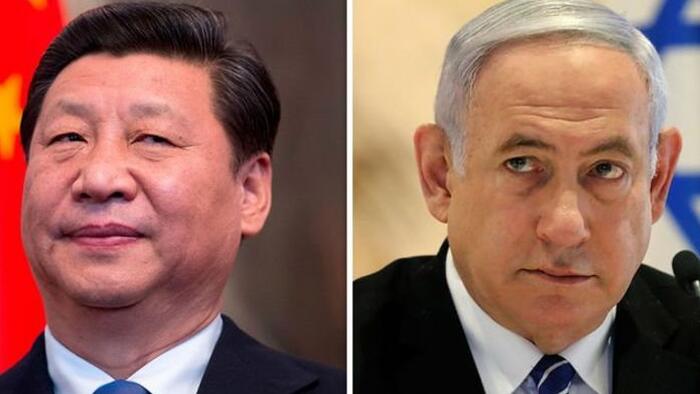


Echoing the stance taken by Russia, China has condemned Israel's unprovoked initiation of war with Iran, calling it a violation of Iranian sovereignty that could bring "serious consequences," with Beijing particularly concerned over the reckless bombing of Iranian nuclear facilities.
In an emergency meeting of the United Nations Security Council on Friday, Chinese UN ambassador Fu Cong said:
“China urges Israel to immediately stop all risky military actions to avoid further escalation of tensions...China condemns Israel’s actions that violate Iran’s sovereignty, security, and territorial integrity, opposes the escalation of tensions and the expansion of conflict, and expresses deep concern over the serious consequences that Israel’s actions may bring."
Later addressing a reporter's question, Fu said "we are particularly concerned that they are attacking nuclear facilities, which is another red line that Israel has crossed." International Atomic Energy Agency (IAEA) chief Rafael Grossi told the UN Security Council that Israel had "destroyed the above-ground part of the Natanz nuclear facility" and that "there is radioactive and chemical contamination at the site." The IAEA later clarified that the contamination was "inside the facility, which can be managed with appropriate protective measures." However, with the underground portion of the facility reportedly intact, subsequent Israeli attacks threaten to change that characterization.
In the early hours of Thursday, Israeli aircraft began striking multiple sites across Iran, not only targeting nuclear and military facilities but also assassinating individual generals and scientists -- with some of those latter attacks coming against civilian apartment complexes where targeted individuals presumably slept with their families, in close proximity others with no attachments to the military of Iran's nuclear program. Iran struck back with waves of missiles, some of which managed to bypass Israeli and US defenses, killing at least two and wounding dozens. Iran says Israel has killed 78 people and wounded more than 320.
Earlier, Russian President Vladimir Putin made phone calls to Israeli Prime Minister Benjamin Netanyahu and Iranian President Masoud Pezeshkian. The Kremlin issued a statement saying Putin "stressed that Russia condemns Israel's actions, which violate the UN Charter and law." Separately, Russia's foreign ministry said "unprovoked military strikes against a sovereign UN member state, its citizens, sleeping peaceful cities and nuclear energy infrastructure are categorically unacceptable.”
Just this week, we reported on Iranian state sources revealing that Russia had plans to construct eight nuclear power plants in Iran, two of which were said to already be under construction. Seemingly validating the claim, Russia's RT news outlet quoted the announcement by a spokesman for Iran's national security and foreign policy committee. The two countries have deepened military cooperation in recent years, with Iran furnishing Shahed drones that have played a central role in Russia's war with Ukraine. In April, the Russian Foreign Ministry condemned US threats to bomb Iranian nuclear facilities, saying such an act "will inevitably lead to an irreversible global catastrophe."
China also has significant economic and military ties with Iran, starting with China's status as the largest importer of Iranian oil -- representing upwards of 90% of Iranian exports. In May, the countries marked the opening of a railway trade route that slashed the transit time from Shanghai to Tehran from 30 days over the seas to just 15 days by rail. That same month, railway officials representing Iran, China, Kazakhstan, Uzbekistan, Turkmenistan, and Turkey met in Tehran to pursue a rail network connecting Asia and Europe. Last week, the Wall Street Journal reported that Iran had ordered large quantities of ammonium perchlorate—a key component for solid-fuel ballistic missiles—from China. The quantity was said to be enough to fuel 800 missiles.
